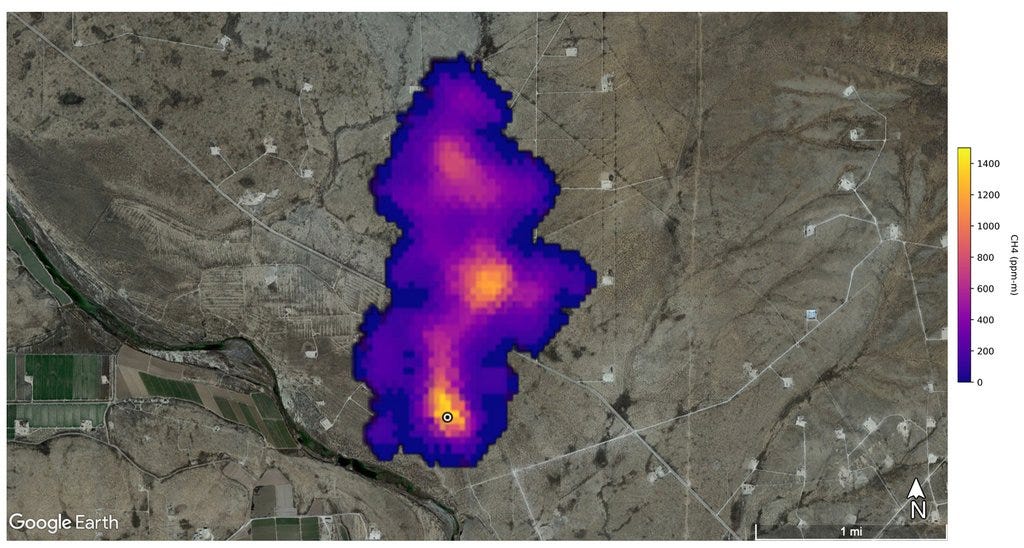Not forgetting Methane...
At COP 26 in 2021, a #GlobalMethanePledge was entered by 150 countries which represent nearly 50% of global anthropogenic methane emissions and over two-thirds of global GDP.
Not forgetting Methane...
The IPCC 2022 report paints a stark picture: #Methane levels have soared to unprecedented levels, far exceeding the emission limits set by the Paris Agreement to keep global warming in check at 1.5°C.
Abating methane emissions is one of the most immediate and effective strategies to curb the pace of climate change. However, to make meaningful progress, we urgently need accurate, source-level methane emissions data from countries and industries worldwide.
At COP 26 in 2021, a #GlobalMethanePledge was entered by 150 countries which represent nearly 50% of global anthropogenic methane emissions and over two-thirds of global GDP.
Between then and now...well just through this week alone, we've seen major announcements concerning Methane action plans
November 14th: #US and #China will initiate technical working group cooperation on policy dialogue, technical solutions exchanges, and capacity building, building on their respective national #methane action plans to develop their respective methane reduction actions/targets for inclusion in their 2035 NDCs and support each country’s methane reduction/control progress. https://www.state.gov/sunnylands-statement-on-enhancing-cooperation-to-address-the-climate-crisis/
November 15th: The #EU Commission welcomed a law to curb methane emissions in the EU and for imports. One thing that stood out from this publication is that by 2027, the Regulation will require that new import contracts for oil, gas and coal can be only concluded if the same monitoring, reporting and verification obligations are applied by exporters as for EU producers. The Regulation will set out a methane intensity methodology and maximum levels to be met for new contracts for oil, gas and coal. https://ec.europa.eu/commission/presscorner/detail/en/IP_23_5776
If you're familiar with CBAM*, I'd assume this law will at some point play a role in extending the list of CBAM-regulated imported goods.
At COP27 last year, the EU, together with the United States, Japan, Canada, Norway, Singapore and the United Kingdom adopted a Joint Declaration from Energy Importers and Exporters on Reducing Greenhouse Gas Emissions from Fossil Fuels, committing to take rapid action in reducing methane emissions.
A common factor is that these laws etc want to have some level of methodology to account for methane or at least track for transparency. Methodologies can be very effective in tackling industries and methane control. Also, transparency as we know allows for effective change. while the NDCs are sharp in countries accounting for their reductions. Methane figures could ignite a ‘shame and blame’ retraction.
Everyone should have access to data and be aware of and monitor emissions that could make or slow down prosperity for all. ICYMI, climate change.
Now, In 2 weeks at #COP28, Greenhouse Gases, Carbon Intensity and Hydrogen will pull a lot of conversations along the pathway to decarbonization...of the manner, things the three have in common - the short-lived climate pollutant that accounts for about half of the net rise in global average temperature since the pre-industrial era should not be forgotten.
Till next time,
Oghosa

